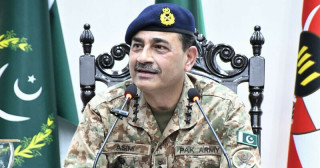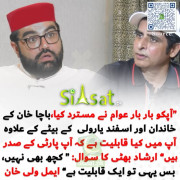First Responder
MPA (400+ posts)
Democracy
a : government by the people; especially : rule of the majority
b : a government in which the supreme power is vested in the people and exercised by them directly or indirectly through a system of representation usually involving periodically held free elections
http://www.merriam-webster.com/dictionary/democracy
No consensus exists on how to define democracy, but legal equality, political freedom and rule of law have been identified as important characteristics.[6][7] These principles are reflected in all eligible citizens being equal before the law and having equal access to legislative processes.
For example, in a representative democracy, every vote has equal weight, no unreasonable restrictions can apply to anyone seeking to become a representative [according to whom?], and the freedom of its eligible citizens is secured by legitimized rights and liberties which are typically protected by a constitution
While holding free and fair elections is an integral part of a true democracy but holding a free and fair elections does not necessarily mean having a true democracy. The examples are Iran and now some gulf states.
In a true democracy the sovereignty belongs to people. Practically speaking if 51% people or their representative law making body decides to make something lawful (Gay marriage or Alcohol) then it will become legal and if they decide to make something unlawful and punishable then they can do that. They also have the right and privilege to decide punishments and penalties.
Islam:
Literally means to submit to the will and pleasure of your creator: Allah
Surah Baqara:208

O you who have believed, enter into Islam completely [and perfectly] and do not follow the footsteps of Satan. Indeed, he is to you a clear enemy.
Ale Imran: 19

Indeed, the DEEN(System a society lives by) in the sight of Allah is Islam. And those who were given the Scripture did not differ except after knowledge had come to them - out of jealous animosity between themselves. And whoever disbelieves in the verses of Allah , then indeed, Allah is swift in [taking] account.
In an Islamic state the law making authority is Allah alone. He alone has the authority to declare something lawful/legal or illegal. Not even 100% people in the state can decide to make Alcohol or Gay Marriage legal. People do have the right to make day to day decisions for running the affairs, such as building roads, making schools, etc. This can be done by consultation/shura with the veto in the hands of the Khalifa(similar to the Presidential veto in American system).
There is no formal system of selecting a shura/council or a Khaleefa prescribed. This is left up to the people, for this it is suggested that elections can be held and a presidential form of ruler can be adopted.
When it comes to legal equality, political freedom and rule of law, as in a democracy, Islam upholds all these values, in fact, Islamic state has pioneered and championed these values when the rest of the world was immersed in the darkness of Kingships and monarchies.
Democracy had existed for about 200 years in the city state of Rome but then it was nowhere to be found till about 200 years ago. In this interval Islamic state/states existed with the concept of legal state (Potentially the law was supreme and the same law was applicable to the Khalifa as well), this concept was unique and foreign in the rest of the world.
The entire world outside the folds of Islam was under some form of a monarchy, where the monarch was above the law and he/she had the ultimate authority to make or break laws. Indeed even today in the democracies there is Presidential pardon and Presidential immunity or some other form of immunity for people in power.
This is not to say that there was no corruption or all the Islamic states were perfect. The individual Khaleefas did frequently usurp the powers and became monarchies. The system of Islamic Khilafat was never intended for it to be a monarchy, hence the struggle and the shahadah of Imam Hussain (RA). The struggle of Imam Hussain (R.A.) was to stand against this concept of Ameer Muawiah appointing his son as the Khaleefa, where as the Khilafa belonged to the muslims collectively
a : government by the people; especially : rule of the majority
b : a government in which the supreme power is vested in the people and exercised by them directly or indirectly through a system of representation usually involving periodically held free elections
http://www.merriam-webster.com/dictionary/democracy
No consensus exists on how to define democracy, but legal equality, political freedom and rule of law have been identified as important characteristics.[6][7] These principles are reflected in all eligible citizens being equal before the law and having equal access to legislative processes.
For example, in a representative democracy, every vote has equal weight, no unreasonable restrictions can apply to anyone seeking to become a representative [according to whom?], and the freedom of its eligible citizens is secured by legitimized rights and liberties which are typically protected by a constitution
While holding free and fair elections is an integral part of a true democracy but holding a free and fair elections does not necessarily mean having a true democracy. The examples are Iran and now some gulf states.
In a true democracy the sovereignty belongs to people. Practically speaking if 51% people or their representative law making body decides to make something lawful (Gay marriage or Alcohol) then it will become legal and if they decide to make something unlawful and punishable then they can do that. They also have the right and privilege to decide punishments and penalties.
Islam:
Literally means to submit to the will and pleasure of your creator: Allah
Surah Baqara:208

O you who have believed, enter into Islam completely [and perfectly] and do not follow the footsteps of Satan. Indeed, he is to you a clear enemy.
Ale Imran: 19

Indeed, the DEEN(System a society lives by) in the sight of Allah is Islam. And those who were given the Scripture did not differ except after knowledge had come to them - out of jealous animosity between themselves. And whoever disbelieves in the verses of Allah , then indeed, Allah is swift in [taking] account.
In an Islamic state the law making authority is Allah alone. He alone has the authority to declare something lawful/legal or illegal. Not even 100% people in the state can decide to make Alcohol or Gay Marriage legal. People do have the right to make day to day decisions for running the affairs, such as building roads, making schools, etc. This can be done by consultation/shura with the veto in the hands of the Khalifa(similar to the Presidential veto in American system).
There is no formal system of selecting a shura/council or a Khaleefa prescribed. This is left up to the people, for this it is suggested that elections can be held and a presidential form of ruler can be adopted.
When it comes to legal equality, political freedom and rule of law, as in a democracy, Islam upholds all these values, in fact, Islamic state has pioneered and championed these values when the rest of the world was immersed in the darkness of Kingships and monarchies.
Democracy had existed for about 200 years in the city state of Rome but then it was nowhere to be found till about 200 years ago. In this interval Islamic state/states existed with the concept of legal state (Potentially the law was supreme and the same law was applicable to the Khalifa as well), this concept was unique and foreign in the rest of the world.
The entire world outside the folds of Islam was under some form of a monarchy, where the monarch was above the law and he/she had the ultimate authority to make or break laws. Indeed even today in the democracies there is Presidential pardon and Presidential immunity or some other form of immunity for people in power.
This is not to say that there was no corruption or all the Islamic states were perfect. The individual Khaleefas did frequently usurp the powers and became monarchies. The system of Islamic Khilafat was never intended for it to be a monarchy, hence the struggle and the shahadah of Imam Hussain (RA). The struggle of Imam Hussain (R.A.) was to stand against this concept of Ameer Muawiah appointing his son as the Khaleefa, where as the Khilafa belonged to the muslims collectively
Last edited by a moderator:


























